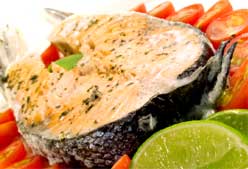 When Nobel Prize winners speak, people tend to listen. Recent economics prize winner Elinor Ostrom was cited “for her analysis of economic governance, especially the commons.” The governance of the commons is exactly the problem we face in fisheries—in the United States and the world.
When Nobel Prize winners speak, people tend to listen. Recent economics prize winner Elinor Ostrom was cited “for her analysis of economic governance, especially the commons.” The governance of the commons is exactly the problem we face in fisheries—in the United States and the world.
This week Dr. Ostrom has been quoted in the catch shares debate in New England—and the quotes did not sound to me like the work that Dr. Ostrom has done. So we at EDF asked her what she thought. Here is what she said:
“I am quite distressed to find that I am being characterized as supporting or opposing particular policies to manage fisheries in New England. To be clear, I have not taken a side in this debate.
“Fishermen and fishing communities all over the world are facing loss of the ocean resources that they depend on. What my work and the work of other scholars shows above all is that the issues involved in managing natural resources are complex. A range of approaches have worked in different places and under different circumstances.
“I have not yet had the opportunity to study the “sectors” approach in detail, and so do not have a view on how it is likely to perform. What we can be confident of is that reducing overfishing and achieving sustainability for the long run will require good-faith effort, hard work, and cooperation among local communities and government authorities.”










 Last week, as part of its 25th anniversary celebration, the Monterey Bay Aquarium’s Seafood Watch program released a report entitled, “
Last week, as part of its 25th anniversary celebration, the Monterey Bay Aquarium’s Seafood Watch program released a report entitled, “